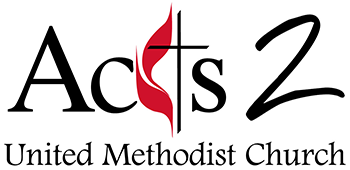Reading
I yell out to my God, I yell with all my might,
I yell at the top of my lungs. He listens.
I found myself in trouble and went looking for my Lord;
my life was an open wound that wouldn’t heal.
Psalm 77:1-2 (The Message)
Reflection
How are you?
When we’re asked that question, we often default to answering, “Fine,” even when we’re not. We may want it to be true, or we may not feel like getting into it, or we may think the person is only looking for a one-word answer that is positive or at least neutral. Sometimes we say we’re fine, but our tone communicates clearly that we are not fine and we want the other person to know it.
It may even be that we really need it to be true that we are fine, because if we’re not, we don’t know what to do.
For Christians, there can be additional pressure from our perception of what faithfulness looks like. If we really trust God, shouldn’t we be fine? In light of all that God has done for us, wouldn’t it be ungrateful for us not to be fine?
If we are honest, though, we know there are places in our lives that are not fine.
In John Ortberg’s adaptation of the 12 steps, Step 1 is, “We admitted we were powerless over our deepest problems—that our lives had become unmanageable.” Stephen Haynes writes that for Christians, Step 1 “has to be preceded by an even more fundamental admission that might be called Step 0: ‘We admitted that despite all appearances, we were not fine.’”
It’s only when we’re honest with ourselves, with God, and with another trusted person that we can even begin to move forward. Until then, we’re stuck.
The Psalms model this for us beautifully. They do not dress up their concerns and pretend like everything is fine. They are sometimes shockingly raw and honest. In Psalm 77, we read, “I yell out to my God, I yell with all my might, I yell at the top of my lungs. He listens. I found myself in trouble and went looking for my Lord; my life was an open wound that wouldn’t heal.” The Psalmist clearly is not interested in acting like things are fine.
In the parable of the lost son, it wasn’t the younger son who had a problem, as Pastor Mark taught us on Sunday. The younger son knew his life was unmanageable. It was the older son who had the problem. In his self-centered complacency, he could not receive the love of his father.
As Pastor Mark said, “Our problem is the problem of the older brother. . . Everyone’s life is unmanageable, even yours.”
In the actions steps, he invited us to identify where in our lives we are not fine. Before you go about your day today, spend some time with God answering that question. Where are you not fine?
So how are you really? If you’re not fine—and none of us are completely—may you feel the relief of no longer having to pretend.
Prayer
God who sees all things,
You see the broken places in our lives.
You know that we are not fine.
You know this even better than we do.
Show us the places where we’re not fine
The places where we’re pretending
The places where we’re in denial
The places where we are in desperate need
Of you,
So that we might begin
The journey toward wholeness.
Amen.


